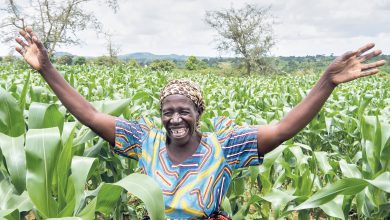Solar energy powers rural economy
Solar energy is transforming electrification in rural communities beyond the national grid. Our contributor CATHERINE TEMBO shares insights from Sitolo Village in Mchinji District along the Malawi-Zambia border.
For decades, dreams of Sitolo villagers flickered in the dark.

The remote locality is located about 15 kilometres from the national power grid, a harsh reality for almost 90 percent of Malawi’s rural majority.
“Due to energy poverty, women walked long distances—sometimes 18 kilometres into neighbouring Zambia—just to access a maize mill. Children studied in dim lights from kerosene lamps and small businesses only thrived from sunrise to sunset,” says Annie Nyendwa Chambulira.
For her community, electricity was a luxury beyond their reach as the expansion of the Electricity Supply Corporation of Malawi (Escom) grid remained sluggish, supplying just four percent of the rural majority in 40 years.
The snail-paced Malawi Rural Electrification Programme, founded by Escom in 1980, forced Sitolo Village to turn to solar energy—the power of abundant sunlight.

The village was still wallowing in the dark in 2004 when Chambulira arrived to marry her sweetheart, an enterprising farmer in the area along the border between Malawi and Zambia.
“In 2007, we tried several businesses, but they couldn’t grow due to lack of electricity. We often closed shop at dusk,” she recalls.
The 80-kilowatt Sitolo Solar Minigrid has shattered the dark past.
Today, the Chambuliras make about K1.3 million a day from their shop and farm enterprises.
During harvesting, they can be seen hard at work in the glow of solar lights, packing onions, tomatoes and potatoes in bags for sale in Mchinji, Lilongwe and neighbouring Zambia.
“Solar power changed everything,” she says. “I can now support my family, employ others and invest in my children’s education. My eldest child is at Catholic University and my younger daughter learns at Mchinji Secondary School.”
With 225 solar panels transforming sunshine into electricity, the minigrid powers 850 households and businesses, including two maize mills and one cooking oil expeller in Sitolo, Ndawambe and Mulosiyo villages.
Farmers and businesspersons work beyond daylight and women no longer cross the border to convert grain into flour for nsima, the staple food.
From sunflower oil pressing to grocery shops, businesses are rising and the local economy is buzzing.
Leticia Phiri’s grass-thatched house is now connected to the decentralised grid.
“Before, I used to rely on my husband for everything. Now, I run a small business in my backyard and earn some profits to support my family. This makes me independent and confident,” she says, packing fizzy drinks in a refrigerator for sale.
Gabriel Chisale, who runs the sunflower oil expeller, testifies to the wonders of solar power.
“Solar energy is electricity like any other, except it comes from the sun. From the power of sunlight, we run this mill which expel up to 15 litres of oil from 50 kilograms of sunflower. We don’t get any money for this service. We only get the leftover cake which we sell as animal feed,” he explains.
Balancing a 50kg bag of sunflower on her bicycle, Lucy Sakala, 23, says the oil expeller has become a lifesaver amid skyrocketing cooking oil prices.
“Before, we used to walk for hours to press cooking oil from our sunflower. Now we do it locally. Life is improving,” she says.
Community Energy Malawi (CEM) established the minigrid with financial support from UNDP through the Department of Energy.
CEM executive director Edgar Kapiza Biyani says decentralised energy solutions like the Sitolo Minigrid are a blueprint for inclusive growth.
“Mini-grids like Sitolo’s are more than infrastructure. They are catalysts for socio-economic development, digital resilience, and shared prosperity,” he says.
CEM engineer Peter Davison Banda says plans are underway to upgrade the 80-kw minigrid to 160kw, extending access to 1 500 households in Sitolo and neighbouring villages.
The system is complete with 474 batteries that store power to keep livelihoods and businesses ticking beyond sunset.
Customer, who pay K20 000 for wiring and connections, buy prepaid units to access power day and night.
Recently, Oxfam in Malawi took a busload of journalists to Sitolo to appreciate the power of renewable energy in ending poverty and inequalities.
Oxfam policy and development officer Macpherson Mdalla says the minigrid is a model for scaling renewable energy nationwide.
According to energy expert Suzgo Kaunda, solar energy is safe and environmentally friendly.
“It can replace firewood, reduce deforestation and improve health,” he said.
According to the Ministry of Energy, electricity access has more than doubled from 12 percent to about 25 percent since 2020. However, electrification remains disproportionately low in rural areas where 84 percent of Malawians live.
Bayani says decentralised renewable energy solutions could help accelerate rural electrification amid slow expansion of the national grid.





